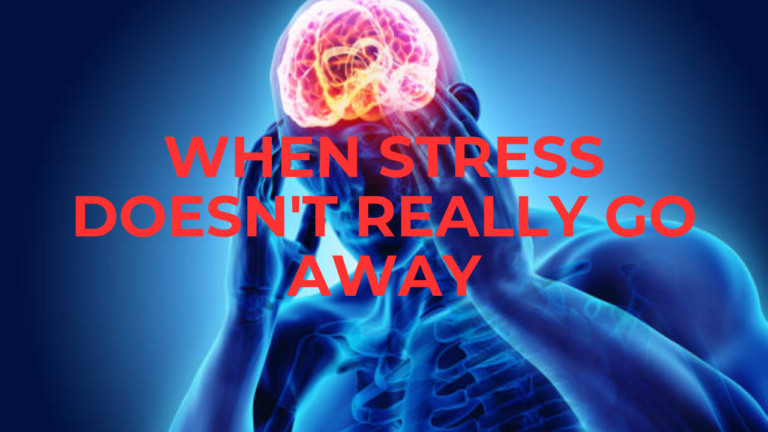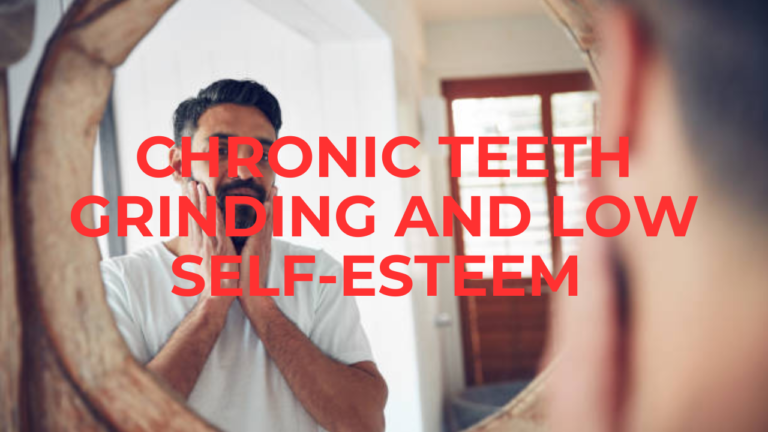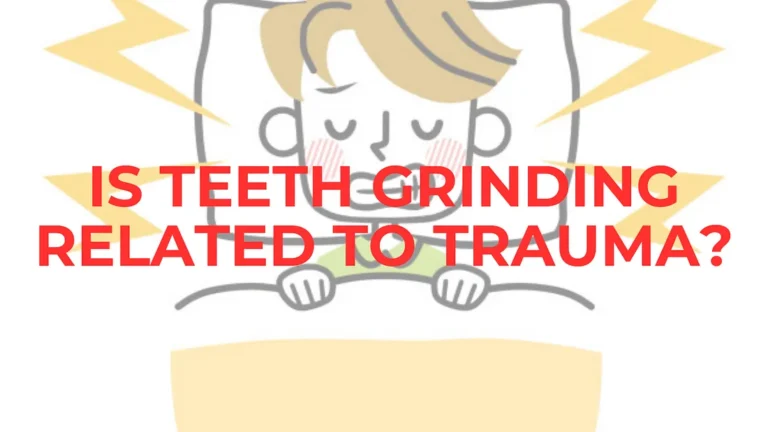Book Appointment Now
Psychology of Bruxism: When You Feel Guilty for Losing Your Teeth due to Teeth Grinding

Today I’d like to answer this question of Feeling Guilty for Losing Your Teeth due to Teeth Grinding. I saw a post where someone was saying that they feel guilty that they are losing teeth because of bruxism. So, let’s talk about these aspects of guilt. I’m going to explain to you the good side of guilt and the negative side of guilt.
Good Side Of Guilt
The positive aspect of guilt is that it can serve as an indicator that you need to address your current situation. It’s like having a guilty conscience — it alerts you that you’re engaging in something you shouldn’t be doing. Looking at guilt this way can motivate you to take corrective measures. For instance, if you’ve been grinding your teeth for a long time without seeking help, that guilt may nudge you to see a dentist, visit a therapist, or take other necessary actions. This kind of guilt is beneficial because, without it, you might continue behaviors without understanding their potential harm or the need for intervention.
So, this aspect of guilt, understanding that your habit of grinding your teeth can lead to tooth loss, expensive dental visits, health issues, and possibly even costly surgeries, is quite acceptable. It nudges or urges you to seek a solution or continue seeking one, which is beneficial in addressing the problem effectively.
The Guilt Where You Shame Yourself
However, there’s another side of guilt that many people get trapped in. This is the side where you feel guilty because of past mistakes, such as your inability to stop the behavior. When you reflect on your life — lost teeth, money spent on dental visits, missed opportunities due to bruxism or teeth grinding, and relationships strained by fear of intimacy — you may experience regret.
You might ask yourself, “Why couldn’t I have stopped this sooner?” or “Why can’t I stop this now?” This self-blame leads to self-criticism, self-shaming, and self-loathing. Unfortunately, this type of guilt doesn’t help resolve the issue; instead, it keeps you stuck in the past, unable to focus on finding solutions or taking corrective action.
Feeling Guilty Exacerbates Your Teeth Grinding
So, this kind of guilt doesn’t actually help you stop grinding your teeth. In fact, it can lead to increased grinding because the more you guilt yourself, the more you feel shame and self-hatred, which generate additional stress in your life. Since you’ve learned to cope with stress by grinding your teeth, your mind may prompt you to grind even more. Instead of motivating you to seek corrective action, this guilt drives you towards repeating the behavior you’re trying to avoid. This highlights the detrimental side of guilt that you should be cautious about.
Instead of feeling guilty because you can’t stop that addictive behaviour (which applies to all addictive behaviours), it’s better to focus on the positive aspect of guilt. Ask yourself, “Am I taking steps to correct this?” Rather than shaming yourself for past mistakes or your past inability to take action, see guilt as a prompt to find solutions and take immediate steps. Gradually, this approach can alleviate stress and reduce feelings of shame. Ultimately, this leads to less anxiety in the present moment, which in turn reduces teeth grinding and other harmful behaviours.
So, when you dwell on regrets and criticize yourself for past mistakes, it worsens teeth grinding. However, focusing on the positive aspect of guilt — taking corrective action — allows you to take responsibility in the present moment. This proactive approach empowers you to overcome addictive behaviours.
It’s natural to feel guilt over something you struggle to control, but harmful guilt arises when you constantly blame and shame yourself for past events instead of taking constructive steps forward.
That’s why it’s crucial to view habits like bruxism holistically, considering their psychological as well as dental aspects. Understanding this mental aspect is essential, which is why psychology plays a significant role in addressing conditions like bruxism.
Achieving peace with your situation enables clearer thinking and better decisions about solutions, whether it involves visiting a dentist or using a night guard. Conversely, excessive guilt can lead to feelings of helplessness and hinder your ability to manage the condition effectively.







